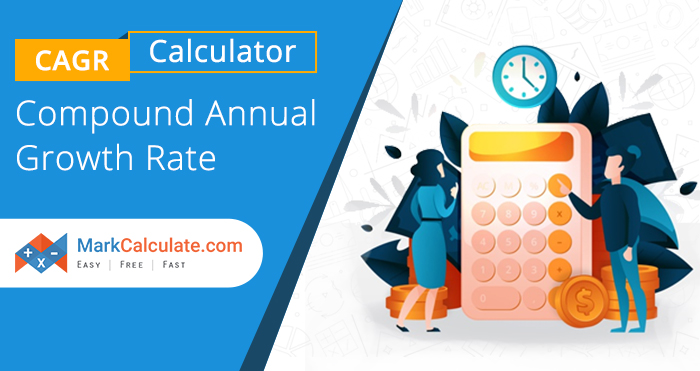Contents
Passive large-cap ETFs offer returns of 11.53% compared to actively managed Large cap funds that offered 10.19%. We have mentioned the top index funds with the suitable category with calculated returns. So pick up one mutual fund to invest in and stay ahead of your peers. When it comes to investing by index fund managers, they have some restrictions and are bound to follow the policies and strategies. For instance, the Standard and Poor’s 500 (S&P 500) index can only invest in the 500 large companies listed in stock exchanges in the United States. So even though there is an opportunity for financial gains in some other small-cap companies the index cannot invest in them.

Since these funds don’t have a team to manage them and they don’t buy and sell stocks actively, their cost structures are really low. As a result, index funds are the cheapest mutual funds you can invest in. INVESTT.in algorithm to select mutual funds picks funds that will likely be top-performing in the near future. The fund has provided an annualised return of 10.9% which is below the peers.
ICICI Pru Nifty Next 50 Index Fund
These mutual funds creates a portfolio which mimics given index. So these funds are expected give similar returns as per index. For most investors, Index Funds are a better option than buying individual stocks. They give you a cost-effective way to take exposure in the entire market. Plus the risk is lesser as you have a diversified portfolio and not just a few stocks.

The objective of the fund is to generate returns that are similar to the performance of the Nifty 50 index by investing in a stock composition that is similar to the index. And in this situation, trading was locked so no one could sell. When the rescue was done, only 25% of the shares were allowed to be sold, and the remaining shares were held for three years. So for the year between March 2020 and March 2021, the impact has been different on different funds, based on how much their AUM was at the time. Before indexes, you simply didn’t have an idea how a stock market was doing. Some stocks were up, some were down, but what was happening overall?
HDFC Index Fund-NIFTY 50 Plan
Return for 2021 was 23.5% , 2020 was 14.7% and 2019 was 12.3% . SBI Nifty Index Fund is a Others – Index Fund fund was launched on 17 Jan 02. It is a fund with Moderately High risk and has given a CAGR/Annualized Using Debit and Credit return of 14.4% since its launch. Return for 2021 was 24.7% , 2020 was 14.6% and 2019 was 12.5% . Franklin India Index Fund Nifty Plan is a Others – Index Fund fund was launched on 4 Aug 00.
How do I choose the best index funds?
Investing in an index fund requires a bit of research. Below are few points that the investors can consider to choose the best index funds:1.It is better to opt for index funds in case the investor is looking for a balanced portfolio. In this way investors will have equity for long-term growth, bonds for stability and index funds as a balance between the two.2.The fund house should have a solid investment background for index funds. It is important to be aware of the history of the fund house like the management team returns. etc.
Hence, they have a lower expense ratio compared to actively managed funds. However, while investing in any best index funds, check the expense ratio. The lower it is, the better your chances to get more percentage of the return the index fund generates.
For example, a NIFTY Index Fund invests in stocks of companies comprising the NIFTY 50 Index in the same proportion and aims to achieve a return equivalent to the NIFTY 50 Index. For example, as Reliance has a 10.3% stake in the NIFTY 50, the fund manager of a NIFTY Index Fund will build a portfolio https://1investing.in/ where the weightage of stocks of Reliance company will be 10.3%. Similarly, stocks of other companies will be held in equal proportion as the index. Ever thought of the indices prevailing in the equity market? S&P 500 (Standard & Poor’s Index 500), BSE 30 Index, Sensex, Nifty, etc.
Accordingly, customers are expected to undertake their own due diligence in consultation with their own advisors and are advised not to solely rely on the Information. Alpaca Securities LLC, a member of the Securities Investor Protection Corporation , will transmit your orders to the stock exchange and will serve as the custodian for your securities account. In the event that Alpaca Securities LLC, fails and is placed in liquidation under the Securities Investor Protection Act, securities in your brokerage account may be protected up to $500,000. The investment seeks to provide investment results that correspond generally to the price and yield performance of the Solactive Global Lithium Index. The underlying index is designed to measure broad-based equity market performance of global companies involved in the lithium industry.
Why Index Fund Is Necessary For Nepal?
While Mutual funds or non-index funds ask for more fees than index funds. Saving money in transactions and broker payment can save one some handy money. For SIP returns, monthly investment of INR 10,000/- invested on the first business day of every month has been considered. Performance is calculated using Total Return Index, with zero cost/expenses. Past performance may or may not be sustained in the future.
The Index funds aim to replicate the profit of the various indices. These are the most common indices we hear in our daily lives. This means that the Index Fund invests in exactly the same proportion of the equity shares as they are listed in the indices. The Index funds do not alter the order and proportion of the shares and thus earns the profit accordingly.There is a different proportion of each share in the indices is different.
Do index funds have fees?
Ans: Yes. However, the fee is much lesser compared to actively managed funds where the expense ratio is higher.
An index fund tracks a market index and replicates the performance of the underlying index. Unlike actively managed funds, for index mutual funds, fund managers have little or no role to play in buying and selling of stocks. Past performance of the schemes is neither an indicator nor a guarantee of future performance.
The scheme, however, does not assure that the performance will be met at all times. Index funds may also overcome the selection bias, since the portfolio composition is not at the discretion of fund managers. Since index funds are passive funds, these just track the index. ETFs tend to be better in the long run because you pay the excess market price once, but you may hold the investment for many years, so the lower Real Expense Ratio will help.
Investors Who Do Not Wish to Track Fund’s Performances Frequently
Index funds usually have a lower expense ratio when compared to other funds. If there are two funds tracking, say Nifty, both will generate a similar return. The fund which will have a lower expense ratio will provide a higher return on investment. If the investors make sure to stick to the investment horizon, index funds are able to offer better returns and which in turn will help the investors to achieve their financial goals. An Index fund tracks a broader market index such as Sensex or Nifty and their portfolio will comprise the same stocks as in the Sensex or Nifty in the same proportions. Index funds are also known as passive funds since they track a particular index and do not require a high level of management of the fund.
.jpeg)
It has had an average yearly return of 13.03% since its inception. HDFC Index Sensex Direct Plan-Growth gains over the last year are 20.30%. It has earned 14.16% average yearly returns since its inception. The fund is invested in Indian stocks to the extent of 99.97%, with 90.13% in large-cap stocks. Index funds are a good place to start if you’re searching for a long-term, low-risk investment. The performance of index funds is dependent on their low volatility, and, as a result, the index is used.
Mutual Fund Screener
The investment strategy focuses on reducing the tracking error through regular portfolio rebalancing. Expense ratio – It is the annual maintenance expense levied by mutual funds to finance its expenses. The lower the expense ratio, the higher will be your actual returns.
As fund managers do not actively take all buying and selling decisions, they are comparatively cheaper than other mutual funds. However, the fund manager decides which stocks have to be bought and sold according to the composition of the underlying benchmark. The fund intends to track only 90-95% of the Index i.e. it will always keep cash balance between 5-10% of the Net Asset to meet the redemption and other liquidity requirements. However, as and when the liquidity in the Index improves the fund intends to track up to 100% of the Index. The fund will not seek to outperform the CNX Nifty Junior.
Consequently, investors preferring predictable returns and interested in the equity market usually invest in this fund. To filter index funds based on different parameters, use Tickertape’s Mutual Fund Screener, loaded with over 50 filters. Tracking error – It determines the difference between the return fluctuations of an investment portfolio and the chosen benchmark. The lower the tracking error, the closer the manager follows the benchmark. Look at the tracking error before making an investment decision about an index fund.
In the case of index funds, the allocation of assets is not up to the fund manager which reduces the scope of investors being at loss due to poor decisions of the fund manager. This saves investors time and they can utilize this time to re-evaluating their portfolios accordingly. Index funds should be used in case the investors wish to avoid constant monitoring and tracking of the portfolio. An indicator of good fund performance is minimum tracking error.
That additional price is an extra expense you pay (one-time, on purchase) which hurts your overall return somewhat. When you don’t have a 0.12% cost to bear, expense ratios will come down, and therefore underperformance will reduce. Exchange-Traded Funds have a quality – they don’t actually buy stocks. They exchange a basket of stocks for units from a market maker or vice versa. So effectively, the market maker buys the stocks, pays STT/brokerage on them and then hands them over to the ETF. The actual return difference between the Nifty and a fund’s one year return is theReal Expense Ratio .
- The fund portfolio and performance are all linked to a specific index.
- Every two years, the fund has doubled the amount invested.
- Select an Index fund with the lowest TER or total expense ratio?
The primary objective is to achieve returns in tandem to the Total Returns Index of Nifty 50 index. The scheme aims to minimise performance difference between its returns and the benchmark index. If you look at real expense ratios for the last year, things will look a little wonky. Because ETFs trade on the exchange at a price that is slightly higher than the underlying NAV. Every ETF has to provide areal time NAV and if you look at it at any point, and the price in the market, you will find the market price HIGHER by maybe 0.2% to 0.5%.
The goal of the index fund is to mirror the exact holdings of the index they track. When you invest in an index fund, the fund manager uses the money to invest in stocks in the same proportion as the index they track. Index funds can provide a better return over a long-term horizon as compared to short term.

